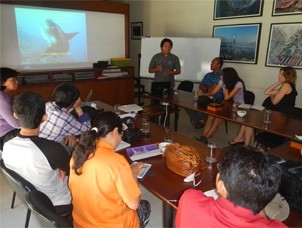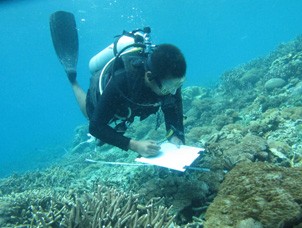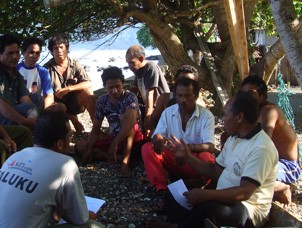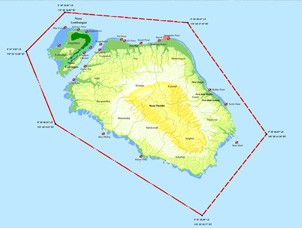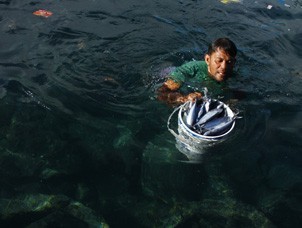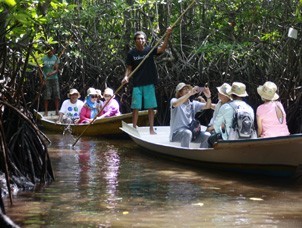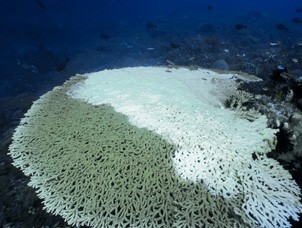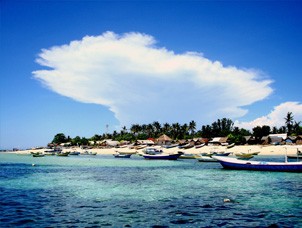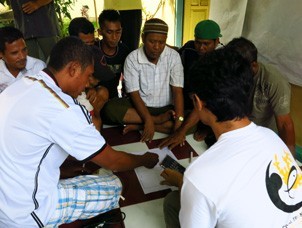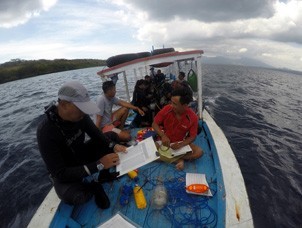Introductory Courses for Coastal Management and Marine Protected Areas
Introductory Courses for Coastal Management and Marine Protected Areas
Threats to our oceans have never been higher. The danger comes from several directions: the growing number of people living close to the shores who all depend on the sea and its resources, the impact of development on coastal ecosystems, the desire and demand for marine products internationally. The situation has reached alarming proportions with the impending impacts of climate change exacerbating these threats on both ecosystems and human communities.
This growing crisis can only be tackled by efficient management and conservation efforts in coastal areas.
One of the key strategies being promoted throughout the region to address these problems is the design and implementation of Marine Protected Areas (MPAs) and networks of MPAs.
Our introductory courses provide a foundation for understanding the tools available for managing and conserving coastal and marine areas, so that biodiversity and food security are preserved for future generations. Some of these courses have been developed for specific areas within the Coral Triangle, but can be adapted to other regions upon request. Other courses are relevant for all Coral Triangle nations.
COURSES AVAILABLE
This course aims to provide participants with a thorough background and up-to-date insights on the design, planning, and management of MPAs. Participants will learn the basics of population dynamics of exploited species, and how these dynamics relate to resource use. While the course uses examples from all over the world, there is a strong focus on the Indonesian context.
Objectives
-
To understand the foundational concepts of marine conservation.
-
To understand the foundational concepts of marine conservation.
-
To learn the role of MPAs as a tool for marine biodiversity conservation, sustainable fisheries, and marine resource management.
-
To understand the basic principles of MPA management.
-
To enhance interest in and awareness of marine resource conservation.
Intended Audience
Conservation practitioners from government agencies, NGOs, and other co-managing user groups. However, the training can be tailored to suit a range of interested audiences.
Minimum Requirement
High school graduate or equivalent, preferably with a basic knowledge of English.
Language
This training can be given in Bahasa Indonesian and/ or English.
Duration
Four full days
This training aims to provide participants with insights on the planning methodology for Marine Protected Areas, called Conservation Action Planning (CAP). CAP is a straightforward and proven approach for planning, implementing, and measuring success for conservation projects. The methodology was developed by conservation practitioners working in real places. It has been tested and deployed successfully by hundreds of teams working to conserve species, sites, ecosystems, landscapes, and seascapes across the globe. While the training will use examples from all over the world, there is a strong focus on the Indonesian situation.
Objectives
-
To learn foundational methodological processes for maximizing the effectiveness of MPA planning and management.
-
To learn foundational methodological processes for maximizing the effectiveness of MPA planning and management.
-
To enhance the ability of MPA managers to design projects using ‘Miradi’ as a support tool.
Intended Audience
MPA management practitioners from government agencies, NGOs, and other co-managing user groups.
Minimum Requirement
S1 (BSc) or equivalent, with a working knowledge of English. Participants will preferably have basic knowledge on marine ecosystems and fisheries management.
Language
This training can be given in Bahasa Indonesian and/ or English.
Duration
Four full days, but can be extended as necessary if final production of a tangible CAP document is desired.
This course provides students with a basic understanding of what CBCRM is, what the technical and process requirements are, and what different roles and responsibilities exist within a CBCRM framework. A shared understanding about the challenges encountered while implementing CBCRM is explored, and solutions and ideas are advanced to ensure success can be achieved.
Objectives
-
To understand the concept and tools of CBCRM in order to promote and support CBCRM of marine natural resources.
-
To understand the concept and tools of CBCRM in order to promote and support CBCRM of marine natural resources.
-
To explore and understand the tools related to CBCRM for further involving local communities in the management of a site.
-
To understand the different roles and responsibilities between stakeholders and challenges faced by stakeholders in applying CBCRM.
Intended Audience
Coastal conservation and MPA practitioners from government agencies, NGOs, and other co-managing user groups; community groups and representatives; communications staff and community liaison officers.
Minimum Requirement
High school graduate or equivalent; a working knowledge of English.
Language
This training is given in English.
Duration
Five full days
This course teaches students how to develop an integrated coastal zone management plan, utilizing a range of analytical techniques and tools.
Objectives
-
To understand the concept of integrated coastal zone management.
-
To understand the concept of integrated coastal zone management.
-
To understand and be able to undertake the range of analyses required for ICZM plan production.
-
To produce an integrated coastal zone plan.
Intended Audience
Coastal conservation and MPA practitioners from government agencies, NGOs, and other co-managing user groups; community groups and representatives; fisheries staff and science officers.
Minimum Requirement
Knowledge of marine and coastal ecosystems and fisheries, and/ or basic formal training in natural or social science. A good basic knowledge of English.
Language
This training can be given in Bahasa Indonesian and/ or English.
Duration
Five full days
This course teaches students the basics of marine ecology, to provide a foundation for understanding marine processes and the importance of marine management.
Objectives
-
To gain a foundational understanding of marine ecology.
-
To gain a foundational understanding of marine ecology.
-
To understand the basic processes taking place in marine ecosystems and the important role of management.
Intended Audience
Government agencies, teachers, dive operators, NGOs, and any other interested stakeholders in marine conservation.
Minimum Requirement
High school graduate or equivalent.
Language
This training can be given in Bahasa Indonesian and/ or English.
Duration
Four full days
Other Courses



